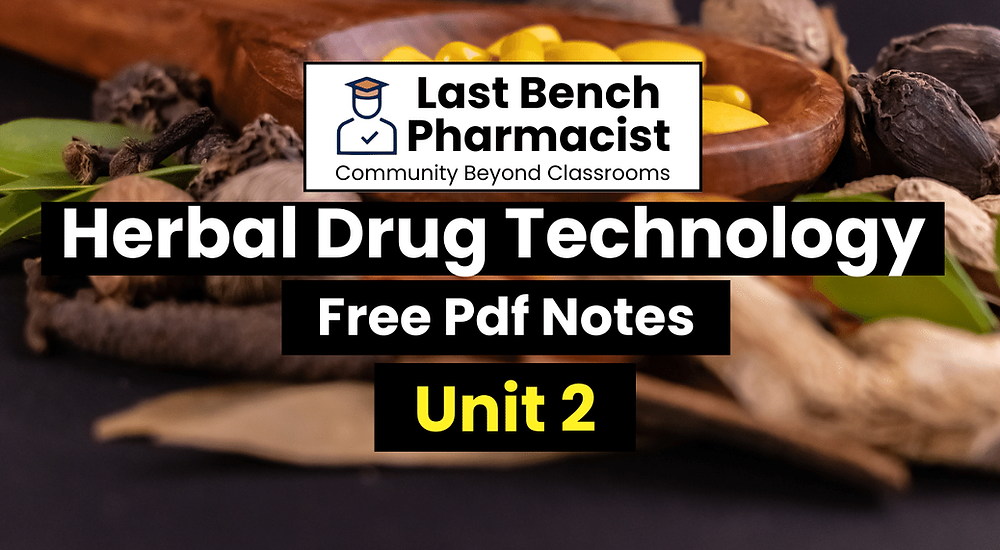



#bpharmnotes #bpharmHerbaldrugtechnologynotes #bpharmpdfnotes
B Pharm Herbal Drug Technology Unit 2 PDF Notes is your passport to the fascinating world of standardization! Buckle up, because we’re ditching the hippie vibes for a more analytical journey. Imagine transforming grandma’s soothing herbal tea into a pharmaceutical marvel, consistent and safe for everyone. That’s where standardization comes in, the science behind ensuring every batch of that magic elixir is exactly the same. We’ll be diving into the microscopic world of active ingredients, learning how to identify and quantify them with cutting-edge techniques.
Think of it like being a botanical CSI, meticulously analyzing plants to guarantee their quality and efficacy. It’s not just about memorizing numbers, though; it’s about understanding why standardization matters for patient safety and harnessing the true potential of herbal medicine. So grab your lab coat (or at least a t-shirt that says “Plant Quality Detective”), unleash your inner analytical wizard, and prepare to be amazed by the science that ensures every leaf packs a consistent punch.
Nutraceuticals
General aspects, Market, growth, scope and types of products available in the market. Health benefits and role of Nutraceuticals in ailments like Diabetes, CVS diseases, Cancer, Irritable bowel syndrome and various Gastro intestinal diseases. Study of following herbs as health food: Alfaalfa, Chicory, Ginger, Fenugreek, Garlic, Honey, Amla, Ginseng, Ashwagandha, Spirulina
Herbal-Drug and Herb-Food Interactions
General introduction to interaction and classification. Study of following drugs and their possible side effects and interactions: Hypercium, kava-kava, Ginkobiloba, Ginseng, Garlic, Pepper & Ephedra.
Think of it like being a botanical CSI, meticulously analyzing plants to guarantee their quality and efficacy. It’s not just about memorizing numbers, though; it’s about understanding why standardization matters for patient safety and harnessing the true potential of herbal medicine. So grab your lab coat (or at least a t-shirt that says “Plant Quality Detective”), unleash your inner analytical wizard, and prepare to be amazed by the science that ensures every leaf packs a consistent punch.